McCabe and Mrs. Miller: The Conflicted 60s/70s Culture
In 1971, when the Robert Altman-directed film McCabe and Mrs. Miller was released, the notion of American “indie cinema” was still in a period of gestation. Distributed by Warner Brothers, Altman’s film could not very well be deemed “indie” by our modern standards, but even so, it helped set a precedent for the anti-studio system spirit that still prevails in modern indie works.
Under Altman’s direction, this “anti-Western” ignores or subverts typical Western conventions (a Pacific northwest instead of southwest setting, a final shootout without witnesses) at the same time as it problematizes more general Hollywood predispositions – because the film itself is created within the confines of an already established constellation of tropes and symbols, McCabe and Mrs. Miller is especially well-suited to use the dynamics of filmic expression to question the ideologies of not just the 1960s/1970s establishment, but also its counter-culture.
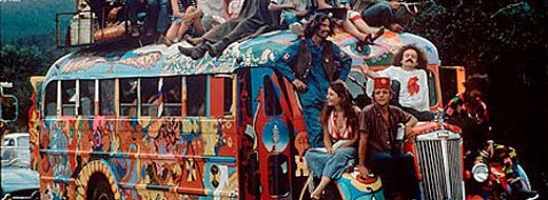
From the outset, with its right to left scrolling credits, McCabe and Mrs. Miller positions itself as a work that shall be distinct from typical American films. However, Altman’s choice is more than a brief announcement of distinction; it also sets in motion a recurring phenomenon whereby the film seemingly adopts a pervasive American concept and then complicates such a concept through an aesthetic language only film can speak.
That part of the filmic world mimics the real world – the right to left scrolling credits imitating, specifically, the East to West sprawl of ambitious migrants – attests to the film’s tendency to wrangle what is supposedly non-diegetic (not of the world depicted in the film) and then force it to become diegetic (having to do with the world of the film and the story being told). In this way, classical Hollywood notions of closure – the idea that the “film world” is self-contained and also separate from the “real world” – are threatened; thus, it is precisely this characteristic of McCabe and Mrs. Miller which allows it to lead viewers to a more thorough and probing reconsideration of their own contemporary American lives.
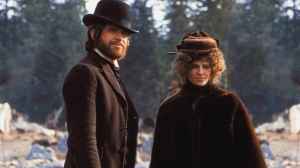
With that basis of non-diegetic to diegetic mutation in mind, the film’s use of music becomes that much more resonant. Leonard Cohen’s theme, which crops up intermittently in the film but plays non-diegetically in its entirety at the beginning, contains the repeated lyric: “I told you when I came I was a stranger.” Interestingly, the dark stranger McCabe’s (Warren Beatty) very first line, muttered aggressively soon after the song lyric plays, is: “Damn it, I told you.” The sheer repetition of the lyric in Cohen’s song comes off as a reaching attempt to convince an audience, and the manner in which McCabe appears to be preparing lines (like an actor) similarly presents the speaker as someone for whom persuasion holds a great deal of importance.
What is more, the fact that McCabe seems to adopt the Cohen lyrics into his portrayal of a stranger wandering into a Western town points to another instance of non-diegetic to diegetic adoption. This moment, in conjunction with later moments in the film where supposedly non-diegetic music becomes part of the diegesis (the tune of a flute plays after the town’s celebration before the camera pans left to reveal a man sitting with the instrument; a mandalin tune over a shot of the reverend walking over a bridge turns out to be played by a townsperson) offers the reading that the issues inherent in the individuals that make up the Presbyterian Church community (ignorant, gossipy, reactionary, timid) are not so different from those in the individuals that make up 60s/70s America.
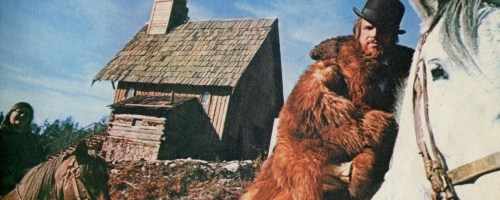
Further condemnation of the Presbyterian Church/American community can be observed in the form of dialogue and the permutations it undergoes in Altman’s film. Most evident is the constant clattle of the townspeople’s gossip which, in addition to their willingness to talk while others do the same, effectively creates a flat and de-individualizing rabble that descends into meaninglessness.
However, the conspicuous entry of the British Mrs. Miller (Julie Christie), who both speaks in cadence distinct enough to hear her words over the rabbling American townspeople and also whose sound track is louder than others (she loudly exclaims to McCabe, “frontier wit, I see,” and blows her nose loudly over his small talk), implicitly derides the unintelligible American clamor. The subtle denigration positions the viewer against the community, and considering the connection between the filmic and exterior communities set up previously, Altman’s style appears to readjust 60s/70s American viewer notions of ‘oneness,’ at least insofar as the film questions the benefits of that homogeneity.
Crucially, Altman’s stylistic choices are not limited to the creative use of filmic sound – image, specifically as rendered by costume, is also paramount to his aesthetic language. Overtly critical to Altman’s later film Nashville (1975), costume in McCabe and Mrs. Miller is slightly more subtle. In the opening scene, coinciding with the Leonard Cohen song, McCabe approaches a town but first gets off his horse to change into a distinctive black hat, which when paired with his large beard shrouds him in darkness.
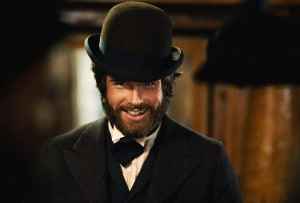
It is clear that he yearns to be seen as a mysterious stranger from the similarity of his dialogue to the lyrics of Cohen’s song and the way in which he takes time to readjust his attire in preparation for entering the town. The care with which one fellow in the bar shaves his beard into a mustache is also evidence of the importance of image in this Western town. At first, the prostitutes bought by McCabe dress exclusively in long-johns, fully acquiescing to the ‘rough and tumble’ Western representation they believe contrasts with the Eastern culture they do not fit in with. It is only when Mrs. Miller arrives with various demands that these prostitutes are then costumed in more genteel attire.
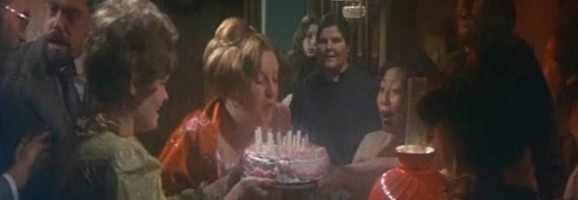
Like her role in piercing the monotonous incomprehensibility of their speech, Mrs. Miller also threatens notions of image that McCabe and/or the townspeople have for their Western community. Just as the American counter-culture movement was significantly attached to a certain style of dressing, costume seems to be Altman’s way of illustrating a threadbare attempt by these vagabonds to distinguish themselves as a ‘one-for-all’ counter-culture community.
Juxtaposition of color is another aesthetic choice made by Altman in an effort to question the community way of life in this town’s Presbyterian Church and 60s/70s America. The Washingtons, the only black couple who appear in the film, do not get to partake in the community that is built in this supposedly escapist living fantasy. When they deliver the Oregon prostitutes to the town, they introduce themselves quite politely, but are only afforded a brief “Pleased to meet you” from Mrs. Miller before the brothel owner calls for another prostitute. That this comes from the outsider, the supposed image changer, is troubling. What is more, despite clearly assisting in putting out the fire in the church, the Washingtons walk away frowning as the rest of the town celebrates. Their simultaneous presence yet absence from the movement West and the community built there can be seen as a chastisement of the American counter-culture movement that mirrors the selectivity of Presbyterian Church.
And finally, McCabe’s dark clothes in contrast with the blanket of snow during his final shootouts drive home a similar presence yet absence from the community he cares about and assists.

While the townspeople drink and smoke in celebration, he sits dying, the dark outline of his body slowly being covered with white snow — he is a martyr, a person worthy of a statue, but his unmoving body will be fully enveloped by the community’s homogeneity. Color (of clothes and of people) yearns to be added to the movement but it is denied again and again, and Altman’s aesthetic choices archive this troubling truth.
What do you think? Leave a comment.











The weakness of this film is the constant downbeat mood. Noone seems to be ever happy and that’s not exactly the way the west was won.
I like the film and have the DVD but it’s imho not the best film.
The film actually took place some time after “the west was won” (there’s a scene at a funeral, and I think the headstone reads early 20th century); and anyway, in reality, the founding of the western states (I think this movie takes place in Oregon?) was incredibly harsh. I definitely wouldn’t describe it “happy”. It was rough. A good western will show you that.
I wouldn’t call it the best film ever made, but I obviously like it a lot; I’d argue that it’s probably one of the (if not the) most underrated movies out there. It’d not upbeat, sure, but the tone fits the message that I think Altman was trying to make.
I like the film because it had me thinking about it and trying to figure it out for days on end. I think understanding Leonard Cohen’s “The Stranger Song” helps in undestanding this movie. Robert Ebert gives an incredible analysis of it in his Great Movies selections.
It’s a great song, and that last line — “I told you when I came I was a stranger” — definitely has relevance to McCabe. What sort of person feels the need to announce that they’re a stranger? A typical Westerner, but also a typically apprehensive person — two supposedly opposite characters types, but McCabe encapsulates both of them.
Nah it’s clearly the best film of all time if not then easily top five
I could easily name five films that are of greater quality than this one.
I don’t know if its THE BEST film of all time, but it’s certainly my favorite movie of all time. I can’t quite describe what I love about it, maybe it’s the hidden tenderness of McCabe’s character, the melancholy or the sadness of it or maybe it’s the theme of the little entrepeneur against the system, is a movie that even 35 years from its release feels absolutely contemporary, also a quality that the best work from Altman still has, probably it all comes down to the sheer beauty of the film, which is beautiful beyond words
Well, that’s because the movie doesn’t take place in what we think of traditionally as ‘the west’ (Arizona, Texas, New Mexico). It takes place in the Pacific Northwest (shot near Vancouver B.C., set I believe, in upper Washington state). This is the same place grunge music came from. It is the area that gets the least amount of sunlight per year in North America and also has one of the highest volumes of rainfall. That’s the primary reason why this movie feels downbeat in tone and not really like any other western made before or since….
Not the best film what’s better then? This film easily ranks with The Godfather,Casablanca, and the treasure of the Sierra Madre. The downbeat mood is a good thing and there’s nothing wrong with that or anything about this film it’s a perfect masterpiece.
This is my personal favorite, and has been ever since the second time I watched it(a couple of years ago). It skillfully incorporates a great many things that I personally find appealing.
More than anything else I identify with the main character and his struggle for personal freedom(in more ways than one) in spite of the threats to that freedom. Constance Miller is somewhat symmetrical in that respect, and so adds a lot to the film. The cinematography creates a mood that assists very well in telling this kind of story. I don’t know if it’s the best film ever made, but I like it better than any other.
Perhaps Altman’s best work.
The Long Goodbye and The Player give it some good competition, though.
I remember “discovering this movie” on my portable black and white Sony TV after a night of partying during my college days and thought it was an intriguing, offbeat, little Western. I still do.
This is certainly one of the most melancholic films out there.
I love how we are intially impressed by McCabe, then disgusted, then skeptical, and by the end we pity and cheer for him. What an interesting character. What a genius Altman is. I wonder why this film isn’t as reknowned as MASH and Nashville? What flaws do people see? I guess some of the shots in the snow look kinda cruddy. That’s all I can think of though. I will overlook them.
This film is considered by Many to be Altman’s best work including Roger Ebert himself does yes McCabe and Mrs Miller is considered to be better than Nashville and MASH.